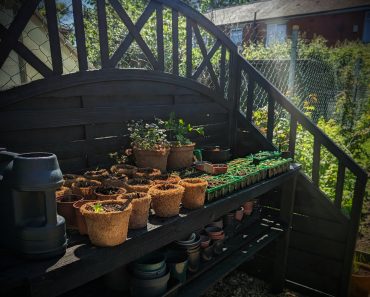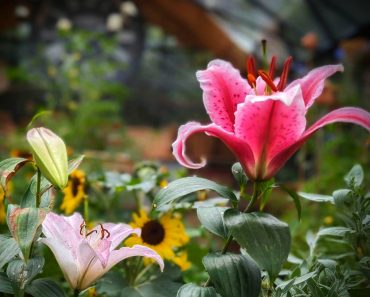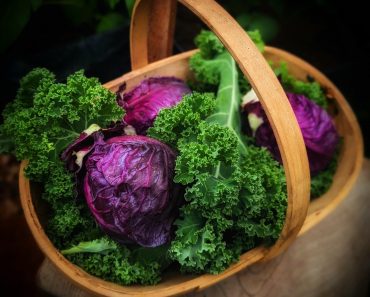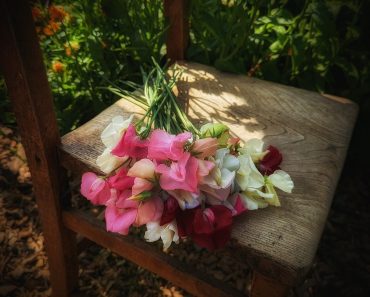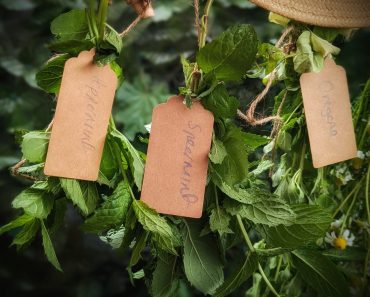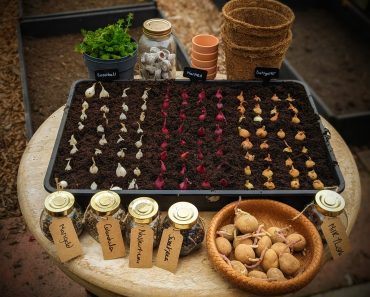Borage is an easy to grow, fast-growing, annual plant with striking blue flowers. Often found in Vegetable gardens and cottage style gardens across the Uk. Learn how to grow Borage and find out why it is so good for your garden!
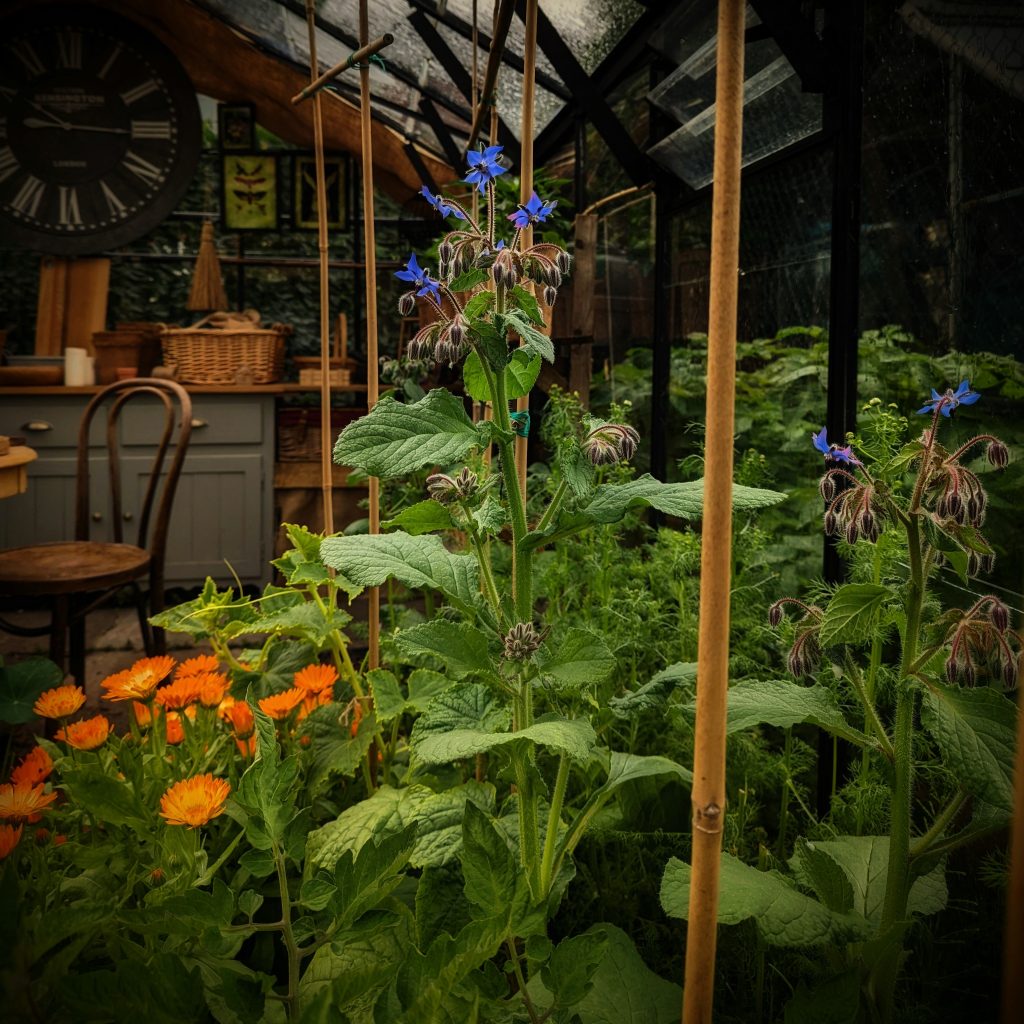
This post may contain Affiliate links please see my disclosure policy
While Borage is considered a Herb, it is mostly grown for its enticing abilities…pollinators absolutely love it! If you want an abundant Vegetable garden, Borage needs to be included, here’s why…
Borage Companion Planting
Tomatoes
- Borage is a particularly good companion plant for Tomatoes, known to repel different tomato pests, notably Hornworms, destructive little critters that can ruin your Tomato crop in record time!
- Borage can also boost the growth and enhance the flavour of your tomatoes. This is due to Borage’s ability to add trace nutrients to the soil.
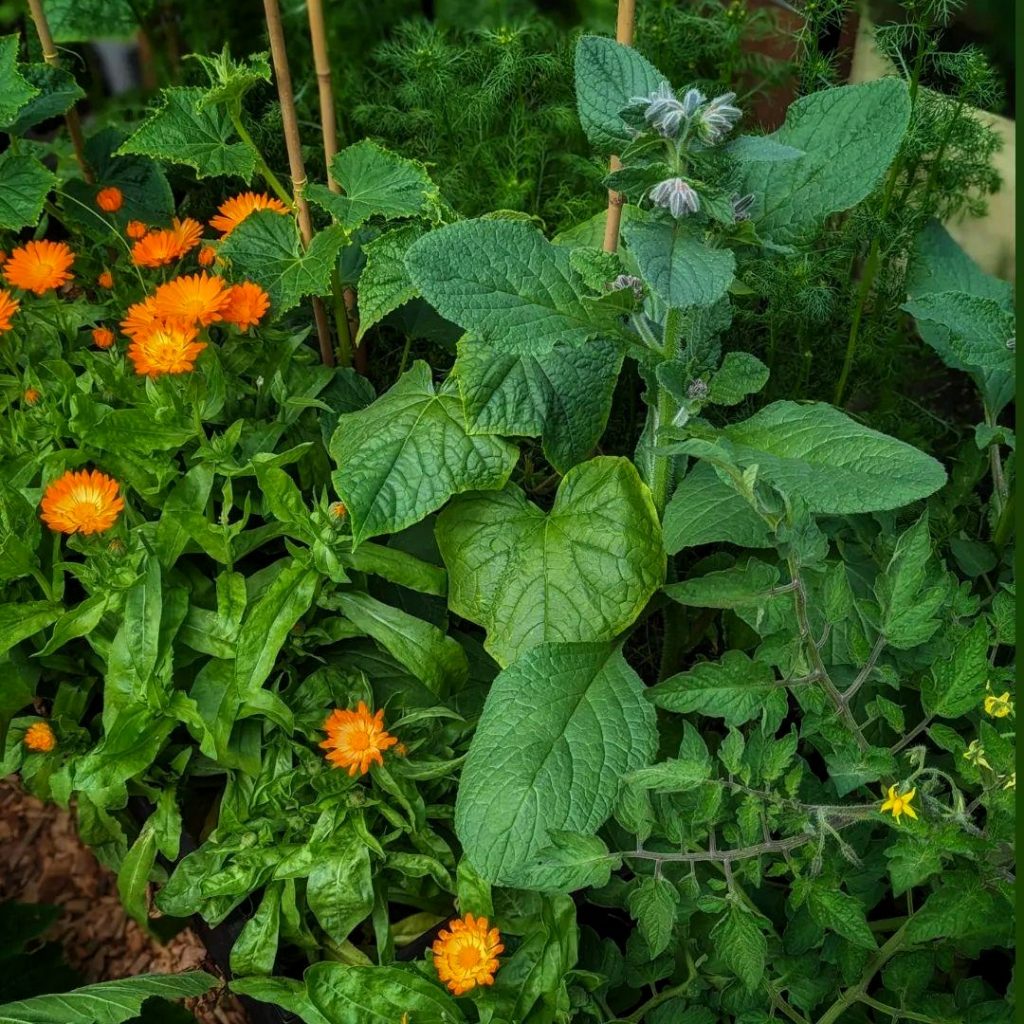
Strawberries
- Borage can improve the flavour and growth of strawberries and attract pollinators.
- A Borage plant will also deter many of the insect pests that attack strawberry plants, further, Borage attracts predatory insects such as wasps, which proves helpful for the Strawberry plants due to the wasps feasting on the pests that would seek to consume the Strawberry plant.
Cucumbers
- Cucumbers can benefit from growing beside Borage. Borage will deter pests and add valuable nutrients to the soil.
Squash
- Borage releases beneficial nutrients such as calcium and potassium into the soil, which can help Squash crops combat diseases such as blossom rot.
Cabbage
- Helps deter Cabbage White Butterfly’s from laying eggs on the cabbage leaves
Borage History
Once a popular token of the ancient gentry! Back in Medieval times, Borage was known as the “herb of courage.”
The beautiful delicate blue Borage flowers would be embroidered by ladies on to the jerkins( short sleeveless outer jackets) of knights about to embark on a crusade.
The Flowers would also be used to flavour wine.

Borage Plant Characteristics
Borage is a gangly fuzzy plant, and at first, somewhat unappealing. But its redeeming quality is soon evident, once the delightful, vibrant blue, star shaped clusters of flowers make an appearance! You become a fan almost instantly!
Those flowers are truly spectacular! and do far more than just look pretty! They attract Pollinators and predatory insects to the vegetable bed, which then service the plants that grow alongside them, making Borage a useful protector and provider of the vegetable patch.
Fun Fact! The flowers are also edible, see my Edible flowers to grow post.
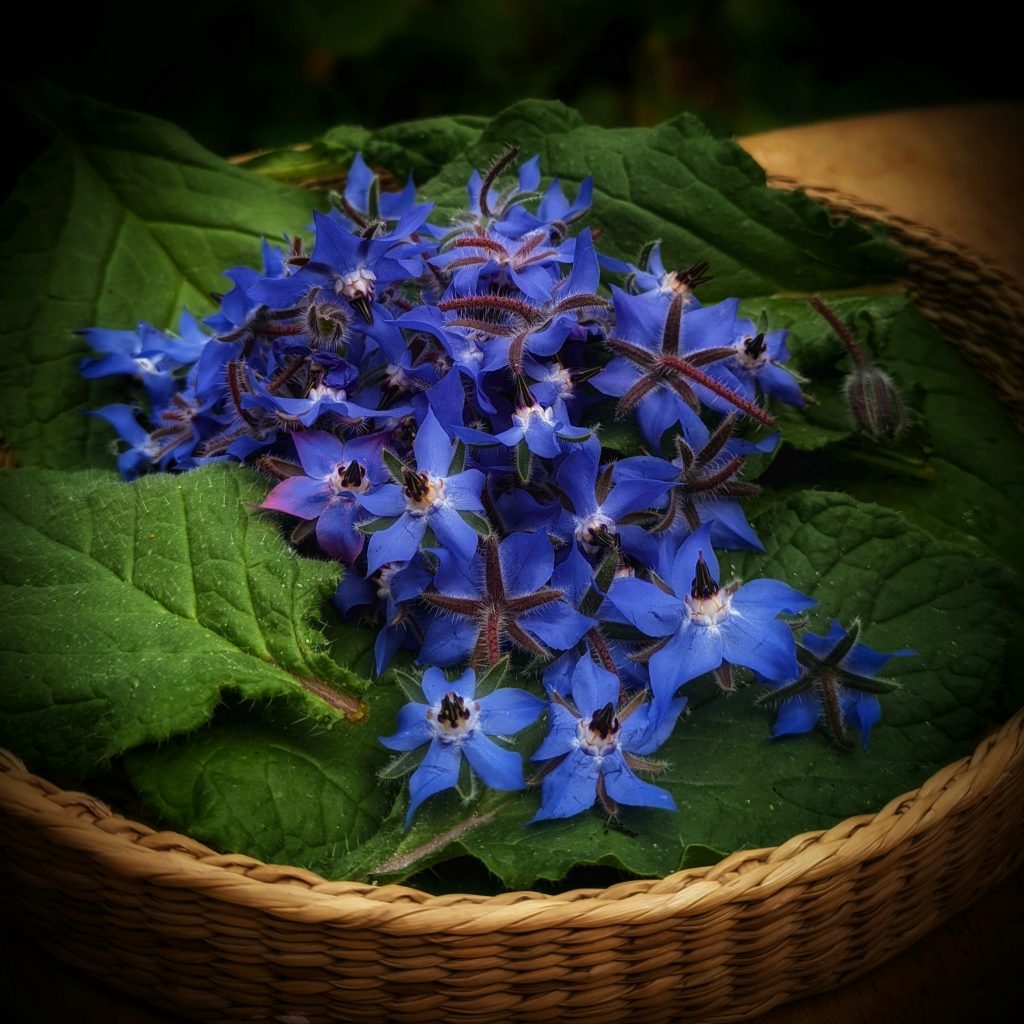
- Borage can grow from 60–100 cm tall and is covered in bristly hairs that are quite uncomfortable to the touch, be sure to wear gloves when handling.
How to Grow Borage from Seed
*Borage(Borago officinalis) is an annual plant but will self seed if left to its own devices
How to Sow Borage Seeds
- Sow Borage seeds directly 1/2 inch deep in the ground in Spring, April-May.
- Or sow indoors on a sunny windowsill 1/2 inch deep in pots, modules or trays late March-Early April, cover with a propogater lid or cling wrap
- When seedlings are large enough to handle, pot on into individual pots.
- Plant out once the risk of frost has passed (perfect for greenhouse beds too, like above) *If raising indoors be sure to Harden off plants before planting out in the garden.
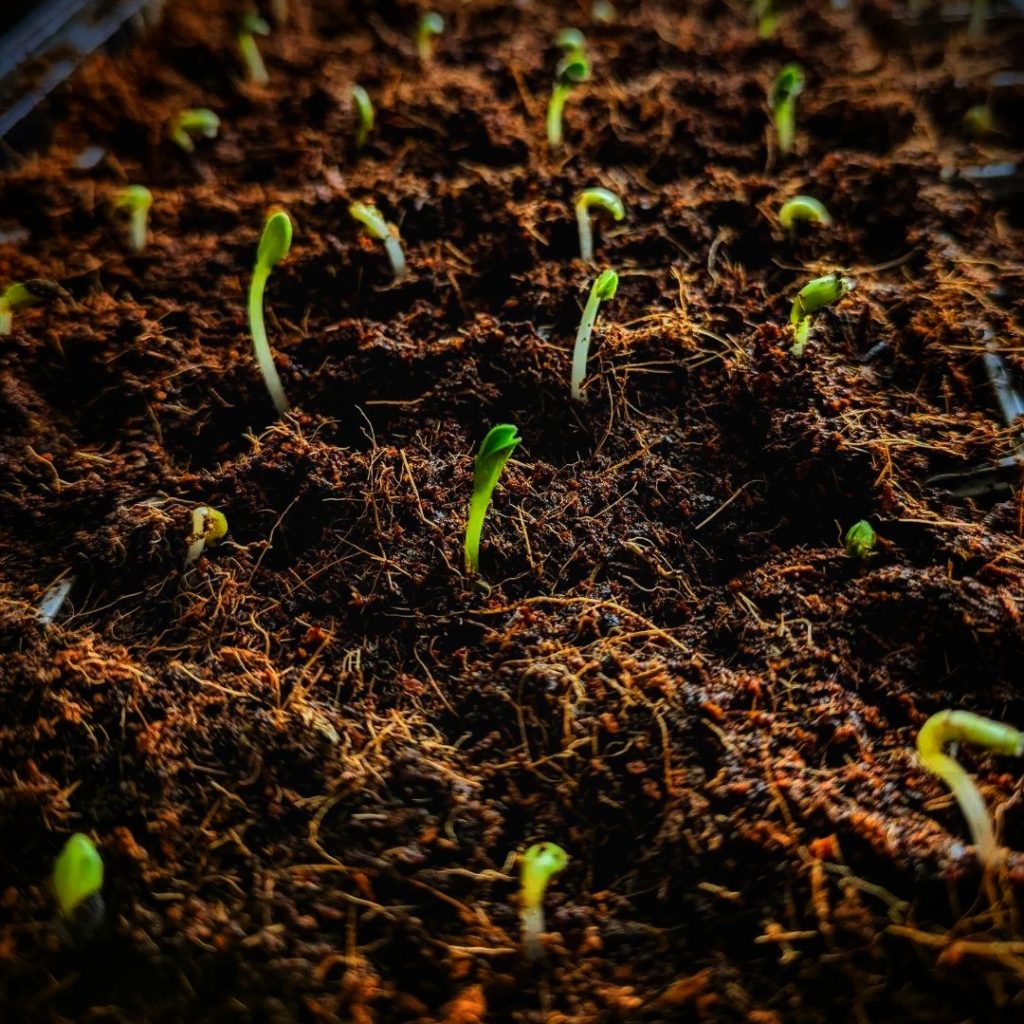
What Does Hardening Off Mean?
Plants raised indoors or in a greenhouse environment, need to be acclimatised to cooler temperatures and increased air movement for about two to three weeks before they are planted outdoors permanently . This is a ‘toughening up’ practice to prepare the plants for their new environment.
How to Harden Off
Place your plants out for a couple of hours in a shady part of the garden. The next day, leave them out again for two hours, but this time allow the plants an hour of direct sunshine in the morning. Gradually continue to increase the length of time the plants are in direct sunshine over the course of roughly two weeks.
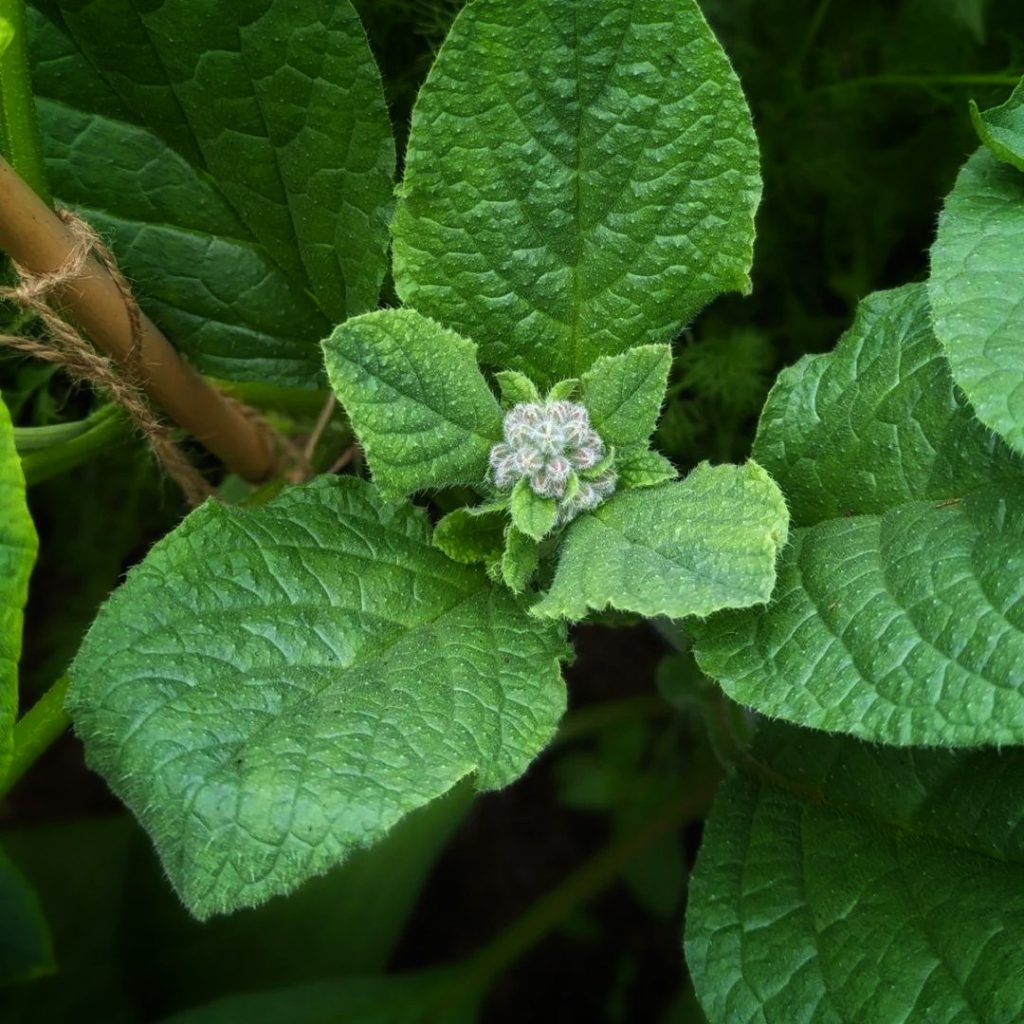
Borage Light and Water Requirements
Borage prefer a full sun spot, but will tolerate partial shade. Borage is generally a self sufficient, fuss free plant, taking all it needs from the earth and requiring very little water pampering! However, during very dry spells, water as required.
How to Care for Borage
Be sure to remove faded flower heads to encourage more blooms. Once the plant is spent at the end of the growing season, pull up and add to the compost bin (* make sure you remove Borage seed heads before composting)
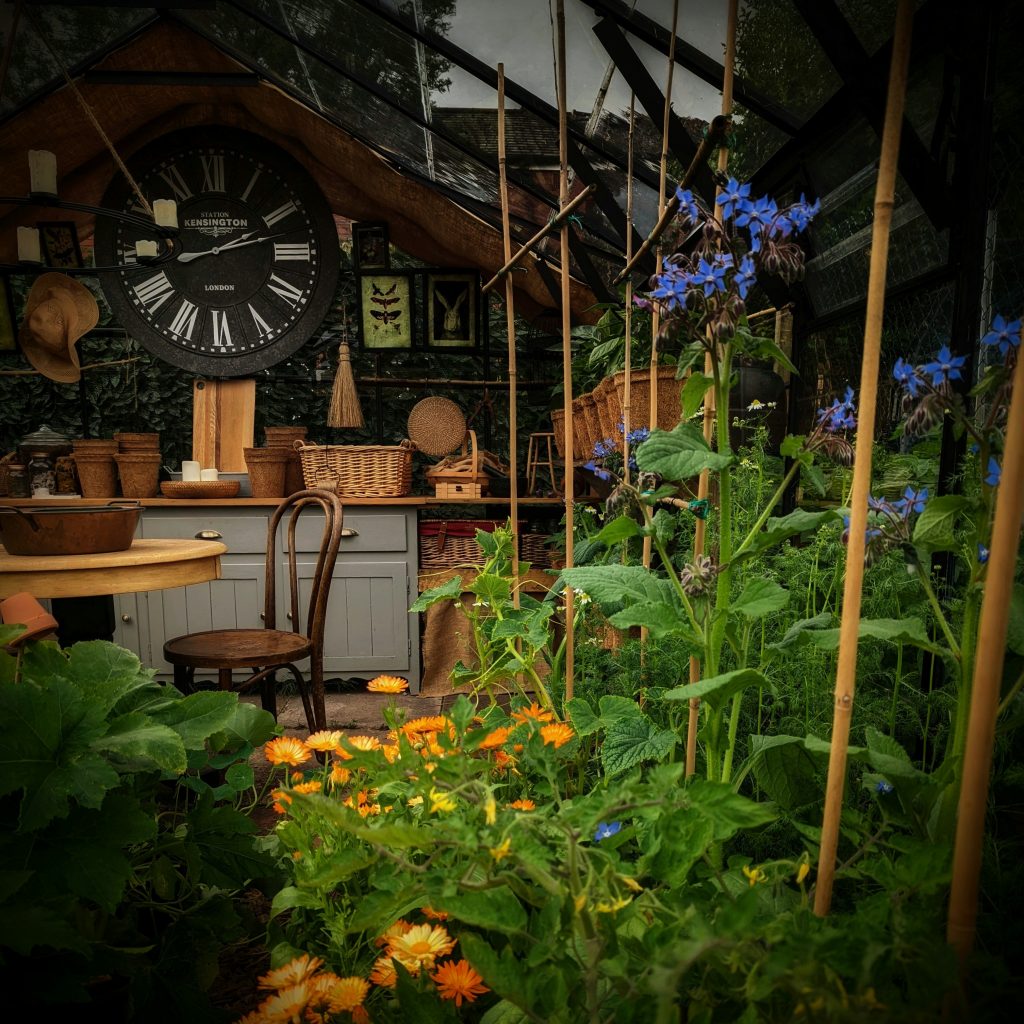
Can you grow Borage in pots?
Yes, they are quite happy to grow in pots, but may grow a little smaller than the ground grown ones.
Want To Grow A Vegetable Garden?
Creating A Garden ? Take a look at these Frugal DIY Posts…
DIY Potting Bench made from Scrap Materials
10 ways to create a vertical Garden
How to Build a Bee hotel from Pallet wood
How To Make A Rustic Fence with Tree Branches
How To make a garden arch with tree branches
Looking For more ‘Homely’ Inspo ?
Have a Nosey Around the Blog! See what i’ve been Baking, Growing and Drinking! Also, pop over and say Hi on Instagram

